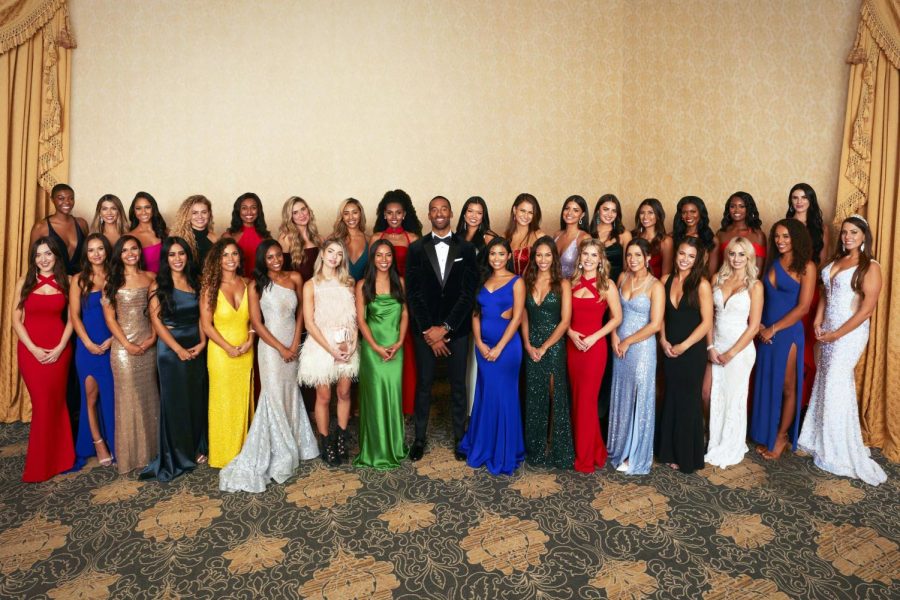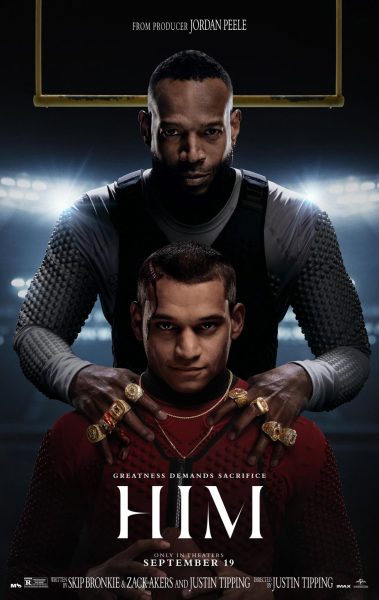The Bachelor and The Increased Diversity of Television
Over the past 10 months, spending the majority of time in our homes has caused most of us to become professional T.V. watchers. Netflix revenue increased by $1 billion, news networks’ revenue increased by 36 percent, and even social media usage increased by over nine percent. With peoples’ focus and inspiration now deriving strictly from the media, some may question whether these outlets are providing us with the necessary and realistic representation of all races, ethnicities, sexualities, and other aspects of one’s identity.
This past year has been a time for the world to see what is truly possible — especially bringing light to the systemic racism that is embedded in our country’s history. These events in 2020 revealed the stagnancy and development that is necessary for our country to grow. Such as the peaceful protests resulting from the mistreatment and death’s of Breonna Tayler, George Floyd, and Eric Garner, to name a few. During these protests, Trump condemned the killing of all these innocent people, stating via twitter, “when the looting starts, the shooting starts”. Additionally, our country experienced an attack on our capital, enforced by the president himself. It was here, that when the lives of his very own members of Congress were in danger, that he took hours to say anything to stop the violence, and then finally put a stop the violence through videos and tweets which stated “go home in peace”, “you’re very special”, and ending with “I know your pain, I know your hurt, we love you”. The very president of the United States stands as a prime example of the way our country has been run around the lives of POC since the beginning of its existence.
Due to the increasing demand of television viewers and the true nature of our country being revealed, many within the industry urged producers to begin accurately representing the world we live in and discuss the difficult events which have been occurring, ones that are typically avoided.
A long awaited example sits in a crowd-favorite dating series, The Bachelor. After 25 seasons in 21 years, the producers finally made the decision to cast the first black bachelor, Matt James. Matt becoming the bachelor was questioned by some due to the fact that the selection pattern of The Bachelor/Bachelorette was out of the ordinary compared to the previous 24 seasons. Traditionally, the star of the current season had been on the show previously, leaving the fans with expectations and anticipations about how this character interacts with other contestants. Matt had never been on the show before.
Junior Sammy Vieder, a lifetime fan of The Bachelor, has a lot of insight on this situation, “You can just tell by watching that they have included more people of color, more sexuality representation, etc. I think they did this because of all the social awareness that has been raised, especially with the Black Lives Matter movement. Usually, The Bachelor is the whitest show, with only a couple black girls and maybe one Asian girl who all get eliminated within the first few episodes. They definitely chose Matt James because of all that’s happening right now, and Matt James is just used as a figurehead to show the people viewing that production isn’t ‘racist’.”
Another interesting thing is when thinking about previous bachelors, they’ve all had a pretty simple background. Matt played college football, is a successful realtor, started a non profit, and works with kids. He has a lot more on his resume than the ordinary bachelor. Vieder stated,“I feel like production did this because they felt that picking someone black is seen as a disadvantage to the show, and they need all of his other accolades to balance it out.”
Matt is not the first black lead of the bachelor series, Rachel Lindsay, star of the 21st season of the series, The Bachelorette, has come out through interviews and her podcast, The Bachelor Happy Hour, how she truly feels about the series’ treatment and representation of People of Color. On Good Morning America, Lindsay said, “The whole point of calling them out was to say, ‘We don’t feel valued, we don’t feel heard, we don’t feel included.’ And you’re saying, ‘Here’s a black person to step into this role.’ It’s great to see it. Love to see it. But it doesn’t make me feel as if you’re really taking into consideration what it is we say when I say systemic racism. The internal, embedded, deep-rooted issues in this franchise where it needs to change structurally. What are you going to do with that?” She rightfully feels as though the producers did the “bare minimum” and the “easiest thing to do”. Her insights shed light on the actual experiences within the show’s production which the viewer cannot see by simply watching the show.
Aside from that, Disney recently released the animated movie Soul, which features mainly black characters, representing them in a somewhat accurate setting. Similarly in 2018, the movie Crazy Rich Asians was released based off of the book series. The movie which took place in Singapore, had a primarily Asian cast, in which the goals were to convey and portray traditional Asian customs. Despite the box office opinion, of over abundantly positive views, different communities did not feel that their cultures were accurately represented and were most concerned about the future influences. People from China, Singapore, Malaysia, and the Phillipines feel that the film avoided mentioning elements of racial minorities, and rather paid attention to class interactions within Singapore.
Recently, released on Netflix, the reality show, some would say the real life version of Crazy Rich Asians, Bling Empire, features a primarily Asian cast showing their lives in California. Along with that, there has been an increasing amount of representation among those with disabilities and members of the LGBTQ+ community. Sia is coming out with a movie Music, in which Maddie Ziegler plays an Autistic character. This sparked controversy among many as she chose an actress who does not actively live with this disability, despite the fact that there are many actors available.
With these few examples in mind, it is important to think if this should even be considered progress. Vieder feels, “as a whole, the entertainment industry has lot of work to do. There needs to be more realistic representation, more diversity, and less mistreatment of minorities. Hopefully the entertainment industry will realize that there are so many people out there who are dying to see a face on the screen that looks, talks, or acts like them.”
With over decades of activism throughout the world, it has taken us this long to make such minor changes. Although disappointing, staying stagnant is worse than changing for the better. With that being said, it is our job to actively support those who have forward thinking minds and ideas, and to the best of our abilities, urge these industries to push for more equality on our TVs.
Hi everybody! I’m Lindsay Schlussel and very excited to be your Student Life Editor. I’m a junior and have been on staff every year since I started...







